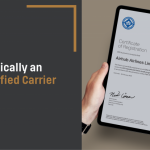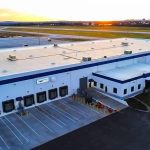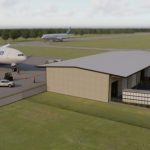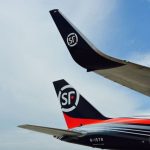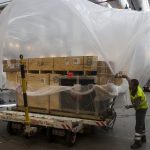Airbus explores how quantum computing could make cargo loading more efficient
Airbus is working with quantum computing firm IonQ to explore how quantum computing could make cargo loading more efficient.
The 12-month Quantum Aircraft Loading Optimization & Quantum Machine Learning project is expected to be the first step towards developing smarter algorithms based on quantum computers that can potentially lead to cost savings due to more optimized distribution of cargo on flights.
The project will culminate in the development of a prototype aircraft-loading quantum application, hands-on collaboration and coaching sessions for Airbus developers and engineers, and an exploration of future integrations of quantum computers for Airbus and its customers.
In the future, Airbus hopes to use quantum algorithms to improve other areas of air travel, including reduced fuel consumption, better aerodynamics, and optimized trajectories.
“As the aerospace industry looks for new ways to navigate the continued impact of the pandemic and overcome supply chain hurdles, we’re pleased to collaborate with Airbus and provide them with the quantum tools and expertise to develop improved aircraft-loading capabilities,” said Peter Chapman, chief executive and president, IonQ.
“While it’s still early days in our yearlong project, the potential for quantum to reshape how airplane manufacturers balance passenger experience with aircraft production and performance is what excites our team most for what’s next in the aviation industry.”
“Optimization is critical to achieving aviation sustainability targets,” said Amanda Simpson, vice president research and Technology, Airbus Americas. “We are very excited to explore IonQ’s capabilities to utilize the potential of quantum computing to achieve these targets.”








